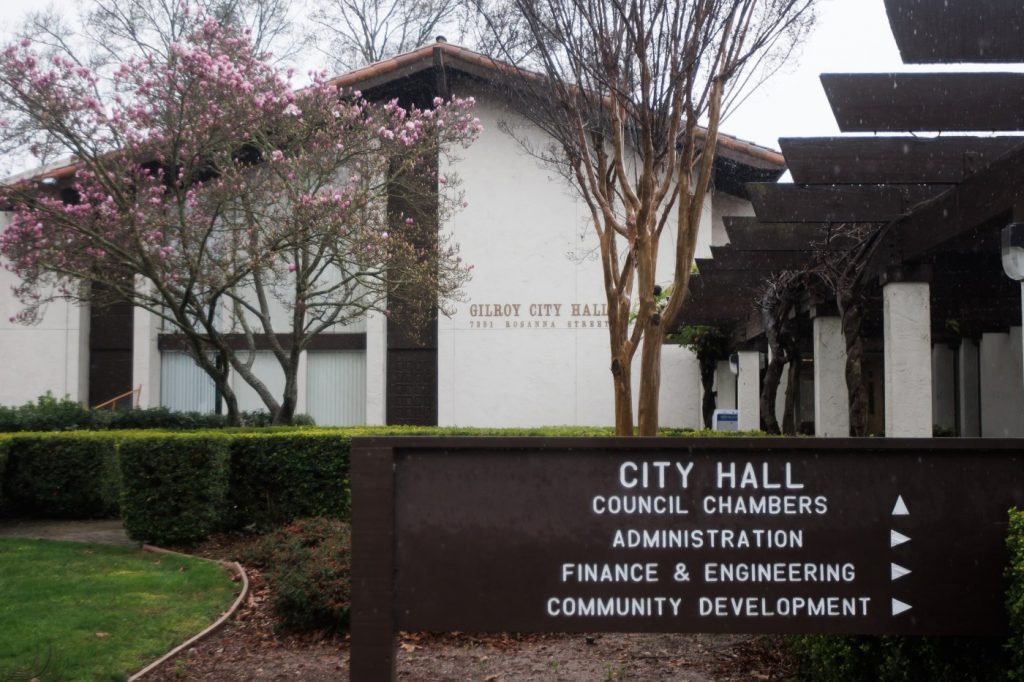After a decade of stagnant staffing, increased calls for service and aging facilities that have plagued its fire and police departments, Gilroy City Council is moving ahead with a ballot measure in November to raise the sales tax by a quarter-cent to help fund public safety.
While city staff agree that the increased revenue will only solve part of the problem, they argue it is an essential step to serve a growing city.
“Just plain and simple we need more people. Those are (needs) that will never be realized in our budget,” said City Administrator Jimmy Forbis, who argued that even cutting all of the Parks and Recreation Department, for example, would still not meet the need. “If this does not pass … it will be very difficult to add staff.”
According to the city, the number of firefighters and police has virtually remained unchanged over the last decade, despite the city’s growth by about 15 percent during the same time period. Meanwhile, Gilroy firefighters respond to 77% more calls than in 2012. That figure is exasperated by an ongoing paramedic shortage in Santa Clara county that at times forces firefighters to spend precious time waiting for ambulances when responding to a call, city staff said.
Given the growth, the city projects it needs to hire 15 police staff, add 17 firefighters, and build one more fire station, in addition to improvements to buildings and equipment.
Faced with such a need, staff recommended a 0.25% increase in sales tax, which the council agreed to explore in an April meeting. The proposed ballot measure would bring local sales tax up to 9.375%, with exceptions for groceries and prescription drugs. The measure could add between $4.1 and $4.7 million every year for staffing, infrastructure and equipment, with about half of that money coming from shoppers who live outside of the city. A seven person oversight committee would be appointed by city councilmembers to ensure the funds were spent properly.
The measure would cost over $81,000 to put on the ballot and would require a two-thirds majority to pass. If approved by voters, it would cost the city an additional fee from the state to implement which could range from around $20,000 to a maximum of $175,000, and would be determined if the measure passed.
Councilmember Dion Bracco called the effort “a waste of $81,000.” “I don’t believe this stands a chance of passing,” he said, noting that a 2014 ballot measure failed in Gilroy and arguing that the increased sales tax would cost local businesses up to $5,000 a year.
However, most in the public and on the council insisted the measure was vital to service the growing city.
“We’ve been riding on borrowed time,” said retired Gilroy Fire Chief Wyatt of aging fire equipment, arguing the measure would alleviate overworked staff and offer help to facilities in need of a “seismic facelift.” “As much as it might sound painful to some, (this measure) is absolutely essential if we’re going to provide the fire services that this community deserves.”
“We need this money. I know that it’s not sitting someplace else. I know that if the voters decide against something like this … we do have to take it from another department,” said Mayor Marie Blankley. Even so, she noted that if the tax were to pass, it would not resolve all of the staffing issues, and would only add about ten positions to the police and fire ranks.
“This is not the perfect solution. It’s going to help with the (city’s) growth but it’s not the magic wand that fixes everything,” Forbis said.
The effort passed 6-1, with councilmember Bracco opposed. If the measure passes, it will go into effect in April 2025.


